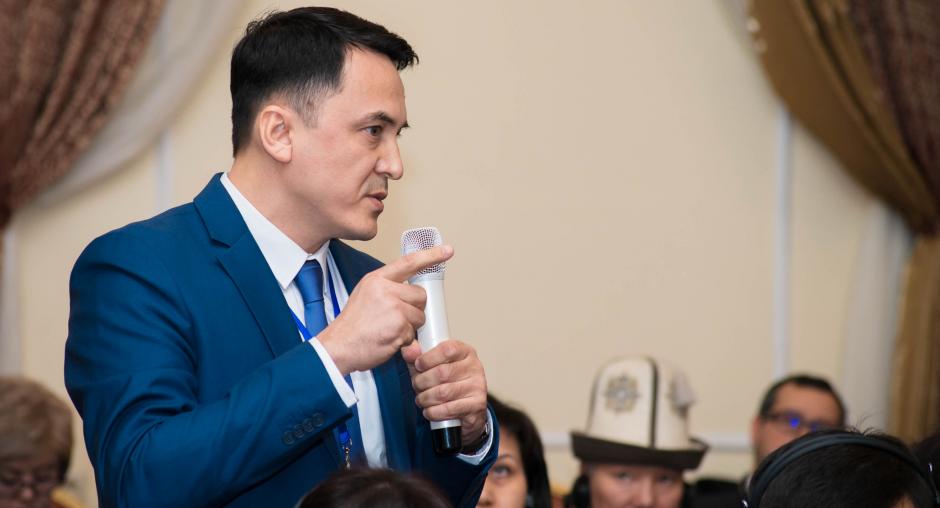Central Asian criminal justice experts gather in Bishkek for bi-annual OSCE/ODIHR forum

Some 120 criminal justice experts from Kazakhstan, Kyrgyzstan, Tajikistan, Mongolia, Turkmenistan and Uzbekistan gathered in Bishkek from 27 to 29 November 2018 for the Seventh Expert Forum on Criminal Justice for Central Asia. The event was organized by the OSCE Office for Democratic Institutions and Human Rights (ODIHR).
Participants reflected on how recent changes to criminal procedural codes in a number of OSCE participating States in Central Asia impacted their criminal justice systems as a whole, as well as fair trial rights specifically.
"It is crucial that professionals working in the area of criminal justice have an opportunity to assess the effect of changes in legislation and policy on their day-to-day work and proceedings," said ODIHR Director Ingibjörg Sólrún Gísladóttir. "The Expert Forum is unique in that it provides this opportunity on a bi-annual basis across the region. We hope that like in previous years, the forum will encourage the emergence of legal and policy solutions that support adherence to human rights standards and more fair and efficient criminal justice systems."
Plenary sessions, working groups and side events allowed for in-depth assessments of new developments in the criminal justice system. This included the establishment of probation and the expansion of non-custodial measures and sanctions to ensure that imprisonment is a last resort, rather than ordered by default.
"In Kyrgyzstan, new criminal and criminal procedural legislation has been adopted as a cornerstone of abidance of human rights and of equality of arms between the parties," said Gulbara Kalieva, Chairwoman of the Kyrgyz Supreme Court who co-hosted the Expert Forum.
The participants, including policymakers, judges, prosecutors, lawyers, civil society representatives and academics, also discussed the need for criminal sanctions to be individualized and proportionate to the offence. Experience was shared on efforts to implement international standards for the treatment of prisoners (the Nelson Mandela Rules), reconciling the requirement of professional prison management with the observance of prisoners’ rights.
The event was organized in co-operation with the Supreme Court of Kyrgyzstan, the United Nations Office on Drugs and Crime (UNODC) and the Office of the United Nations High Commissioner for Human Rights (OHCHR). It was supported by the OSCE Programme Offices in Astana, Bishkek and Dushanbe, the OSCE Centre in Ashgabat and the OSCE Project Co-ordinator in Uzbekistan.
